'Black Panther: Wakanda Forever' Is A Transitional Film Honoring The Mantle and Impact
The nations of Wakanda and Talokan enter war over their opposing viewpoints on dealing with the destructive hearts of humankind on the surface world.


How closely does an actor need to resemble a character or historical figure in order to portray them on the Silver Screen?
The answer largely seems to depend on whether you are darkening the character’s skin tone.
We call this colorism, and in the case of Black women, misogynoir.
Moya Bailey, Ph.D., author of Misogynoir Transformed: Black Women’s Digital Resistance, defined misogynoir as “the ways anti-Black and misogynistic representation shape broader ideas about Black women, particularly in visual culture and digital spaces”.
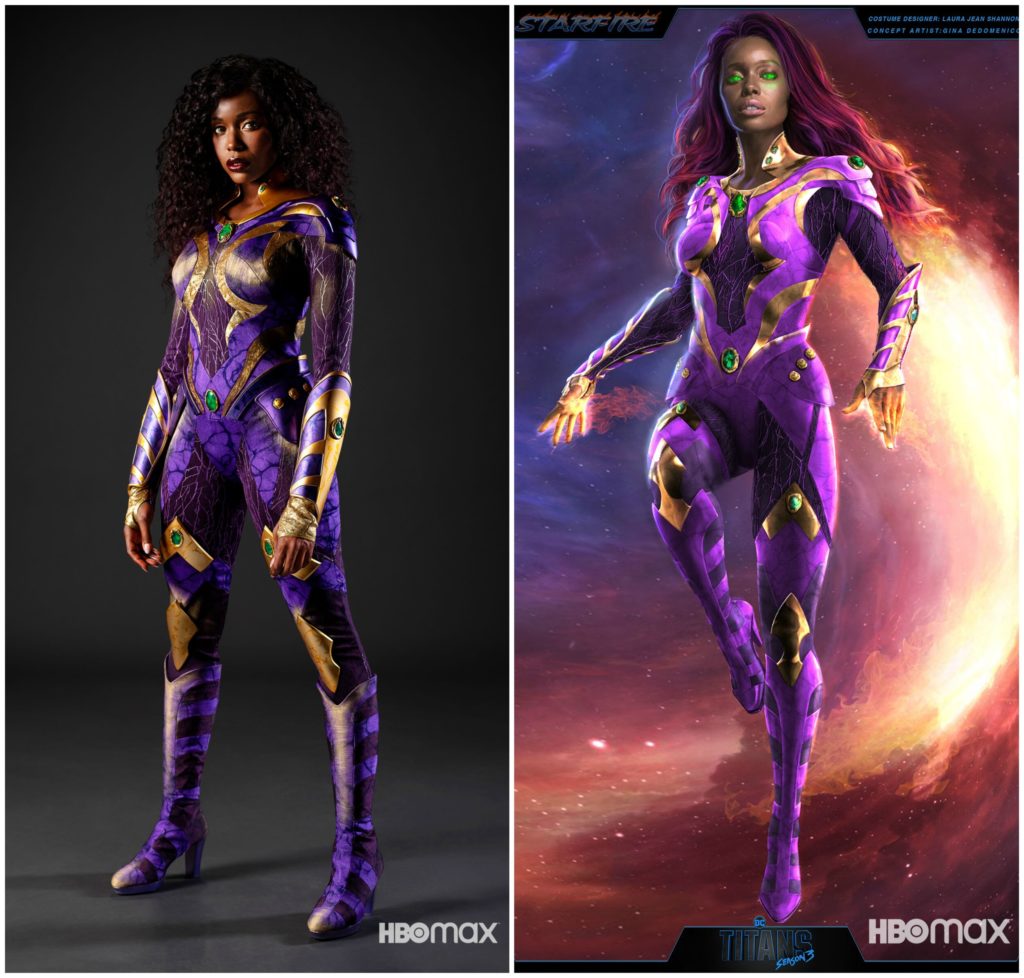
There was a major uproar in 2018 when Anna Diop landed the role of Starfire on DC’s Titans on HBOMax. The vitriol and fake concern over character design integrity were not unexpected. Whenever a darker skinned or Black (the two are not always interchangeable) character is whitewashed or given racially ambiguous features and lighter skin, any criticism is met with useless platitudes that ignore systemic issues or are benefit-of-the-doubt excuses. Suddenly, the “best person” for the role should get it regardless of race or the animation team was just going with a pastel palette.
The reverse situation is never given this benefit of the doubt.
The backlash is always swift when people of color are added to franchises that were previously all or majority white. The narrative becomes “diversity hire“, and never that perhaps they were the best person for the role. That vitriol is magnified against Black characters, and it is most vicious for Black women. Especially, darker skinned, unambiguously featured Black women.
How else does one explain the outrage over Anna Diop playing a dark skinned, orange alien humanoid?
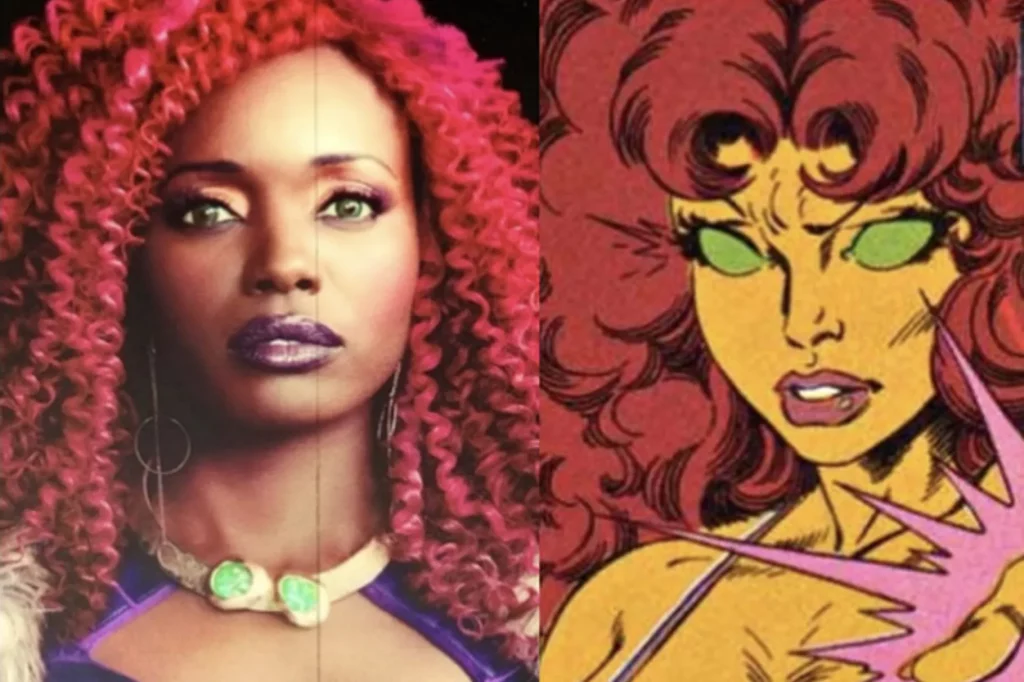
But deafening silence and tone-deaf silencing of criticism towards these two biracial, lighter skin, ambiguous featured actresses in X-Men movie universe,

portraying one of the few high-profile, dark skinned, unambiguous Black women in popular media, Storm.
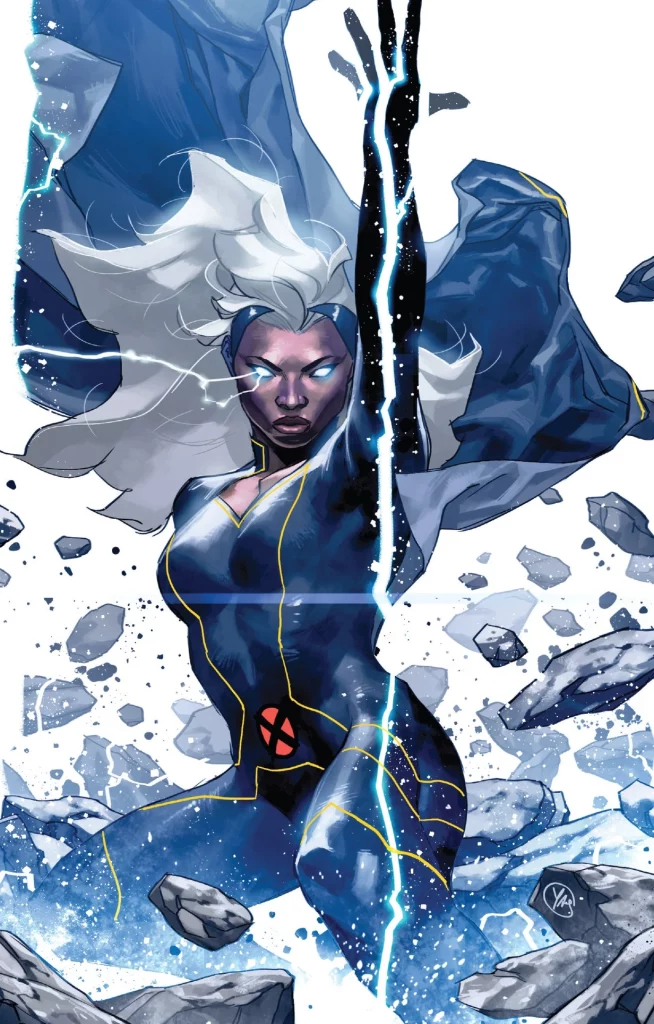
Here is another reference in case you are missing the point.
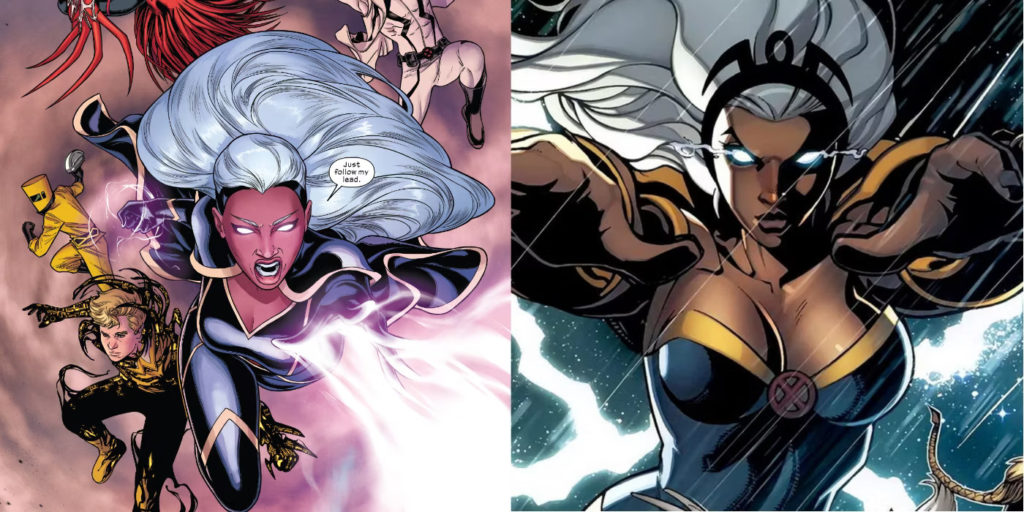
There has also continued negative backlash against Halle Bailey playing Ariel in the upcoming live-action remake of The Little Mermaid. This is despite the fact that Director Rob Marshall said there was no agenda in casting Halle Bailey as Ariel, stating: “[w]e just were looking for the best actor for the role, period. The end.”
Seemingly, Director Rob Marshall is in line with the common excuse for why whitewashing happens. However, for some, a Black person never seems to be the best person for the job. It turns out it is just gaslighting accusations of colorism and anti-blackness.

Indeed, this was the exact gaslighting that was weaponized against the outrage Nina Simone’s family and fans felt when Latina Zoe Saldana was cast to portray the legendary singer and Civil Rights activist. Saldana had to have her skin darkened with makeup and be fitted with a prosthetic nose in an attempt to replicate Nina Simone’s dark skin and unambiguous features. Many likened the attempt to modern blackface. There is also Saldana’s history of comments asserting that she did not necessarily identify herself as Black, and her own history of gaslighting the issues of colorism and racism. This adds up to her being a questionable choice to play Nina Simone, whose Black womanhood was central to her activism.
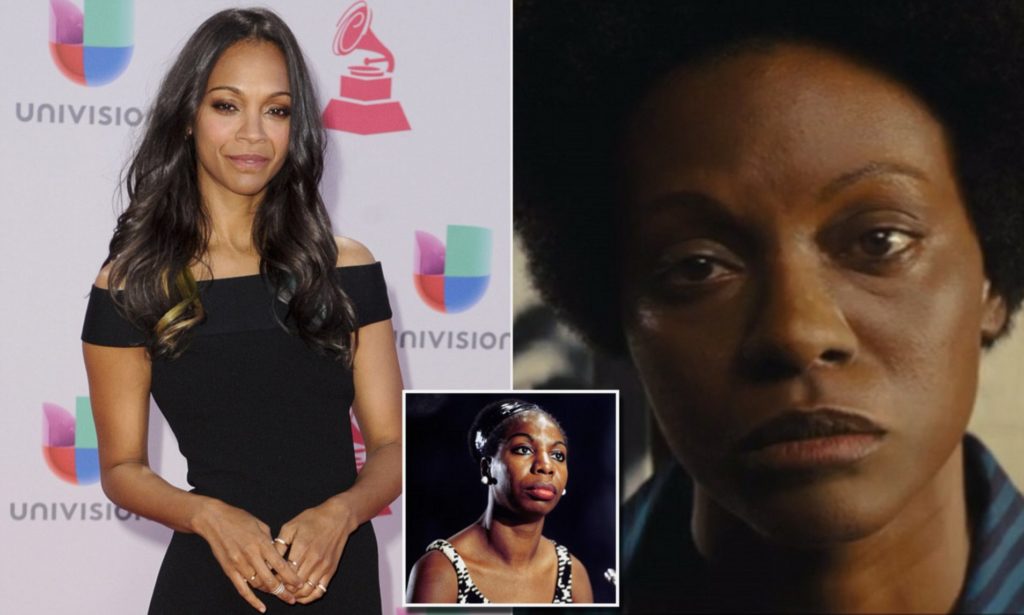
Yet, as usual, Black women were largely left on their own in the defending of Nina Simone’s legacy. Simone’s daughter, Lisa Simone Kelly, told Time that she found the movie to be disrespectful of her mother’s legacy, while also praising Saldana’s other work. She gave a nuanced critique that Saldana was just wrong for this part, given Nina Simone’s activism around celebrating and advocating for natural hair and unambiguous features as Black beauty in a colorist, anti-black world that constantly said otherwise. Casting a darker skinned actress would also help give more representation.
All of this was thrown to the side. Everyone else, including many Black men, like funder Robert L. Johnson, largely defended the casting choice.
The movie bombed accordingly.
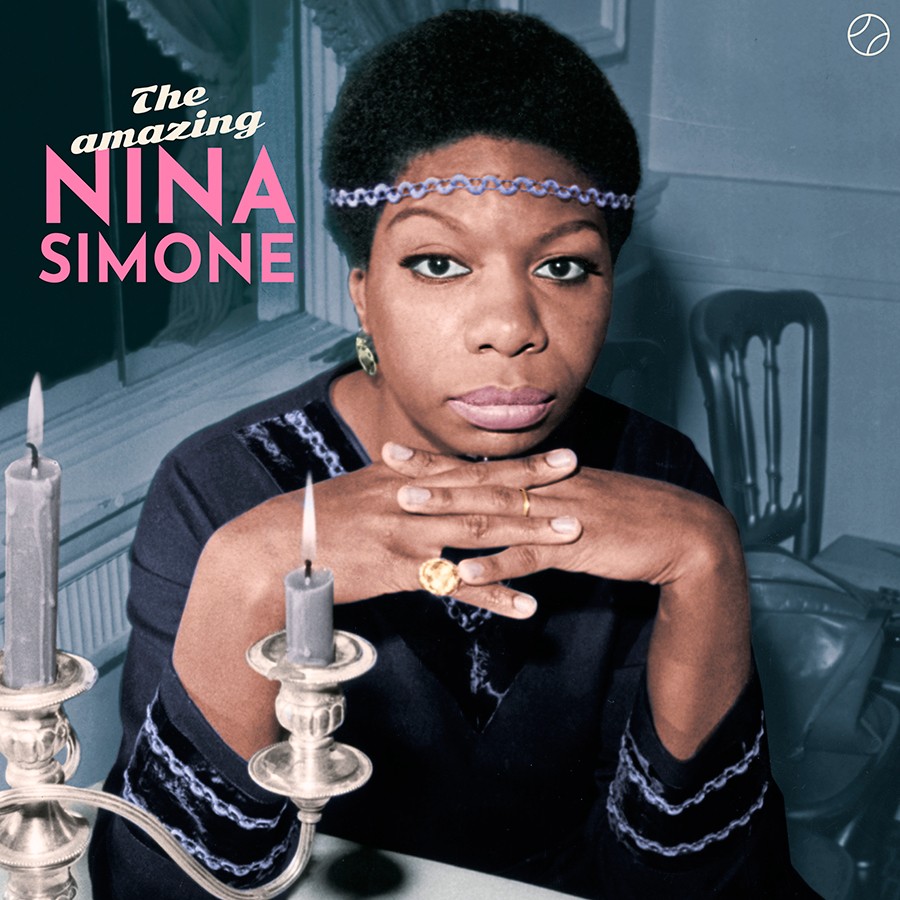
Similarly, a cursory Google search will actually find mostly articles defending Halle Berry being cast as Storm. Even discussions of her absolutely wanting to reprise the role despite accusations of colorism and erasure. Alexandra Shipp stated that Black people being upset over another biracial woman taking one of the precious few roles for unambiguous Black women in a major franchise is “negative” and “racist.”
No major networks or thought leaders pushed back against these harmful miscasts contributing to Black women’s erasure in media. Likewise, many fans (myself included) were often met with indifference or hostility when we did complain about the harmful messages the constant supplanting of Black women in media with biracial, ambiguous portrayals sends.
Meanwhile, Anna Diop had to turn off comments on her social media feeds to block out racist attacks against her. This is eerily similar to Moses Ingram receiving racist backlash for her portrayal of Reva Sevander on Obi-Wan Kenobi: A Jedi’s Return.
You might fool yourself into thinking that it’s reasonable to want a character to be accurate to the source material, but consider the following questions. Why is the response inconsistent? Who on planet Earth is dark, orange-skinned with fire-red hair and glowing green eyes?
Lastly, how come no one seemed to notice when Jessica Alba played Sue Storm? Wonder if how much value and attractiveness we give people factors into the equation?
Questions. Questions.
If you are interested in helping with this issue, start by listening to Black women when they tell you about the unique struggles their intersectionality brings. All women face sexism. Most women of color face some form of racism. Darker skinned people generally experience colorism and anti-blackness. Misogynoir is like all of that rolled together. And only Black women face misogynoir.
Ending on a positive note, Anna Diop has expressed interest in portraying Storm, and we are here for it.
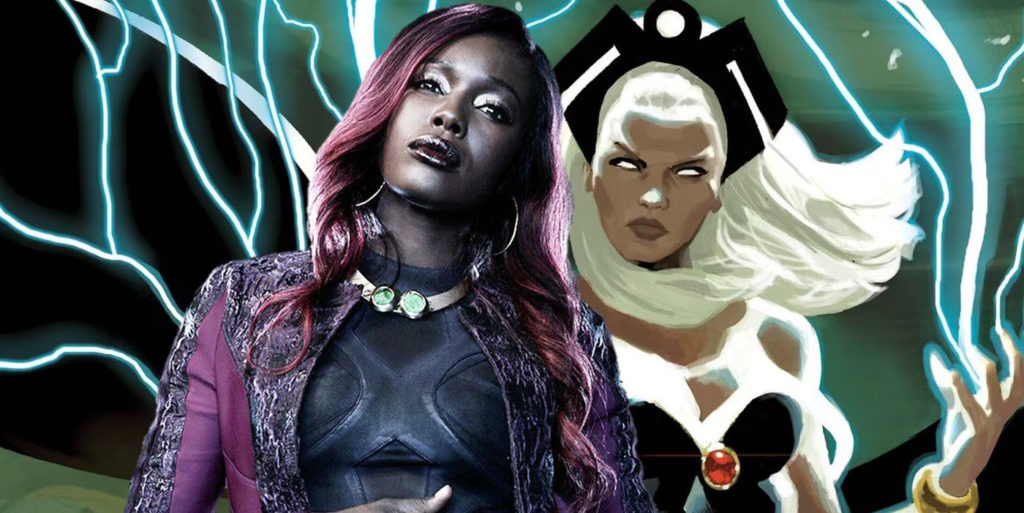
Related lists created by the same author
The nations of Wakanda and Talokan enter war over their opposing viewpoints on dealing with the destructive hearts of humankind on the surface world.
Related diversity category
Many call 'Tragedy Girls' a modern-day 'Heathers', and I do see the resemblance. The film asks the same question that all teenagers suffer with: who am I? Well, the movie answers this — you are your online presence.
Related Movie / TV / List / Topic
This animated movie focuses on Nick Daley, the son of Larry Daley, as "Kahmunrah Rises Again."